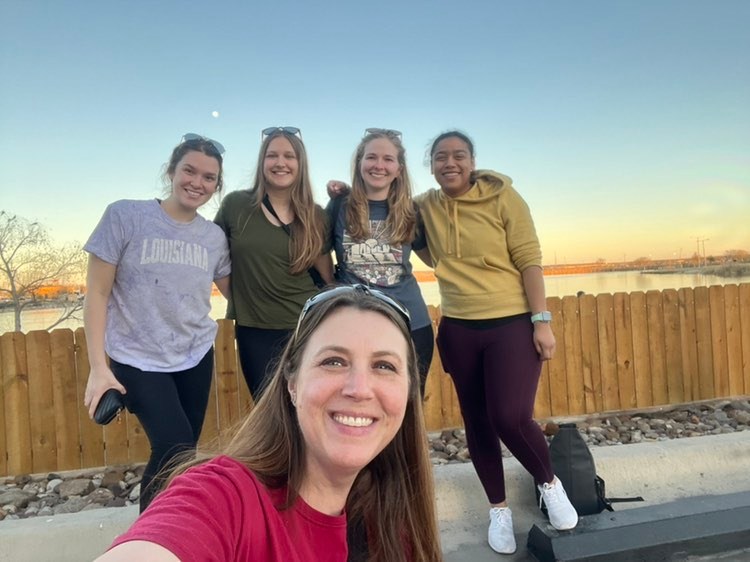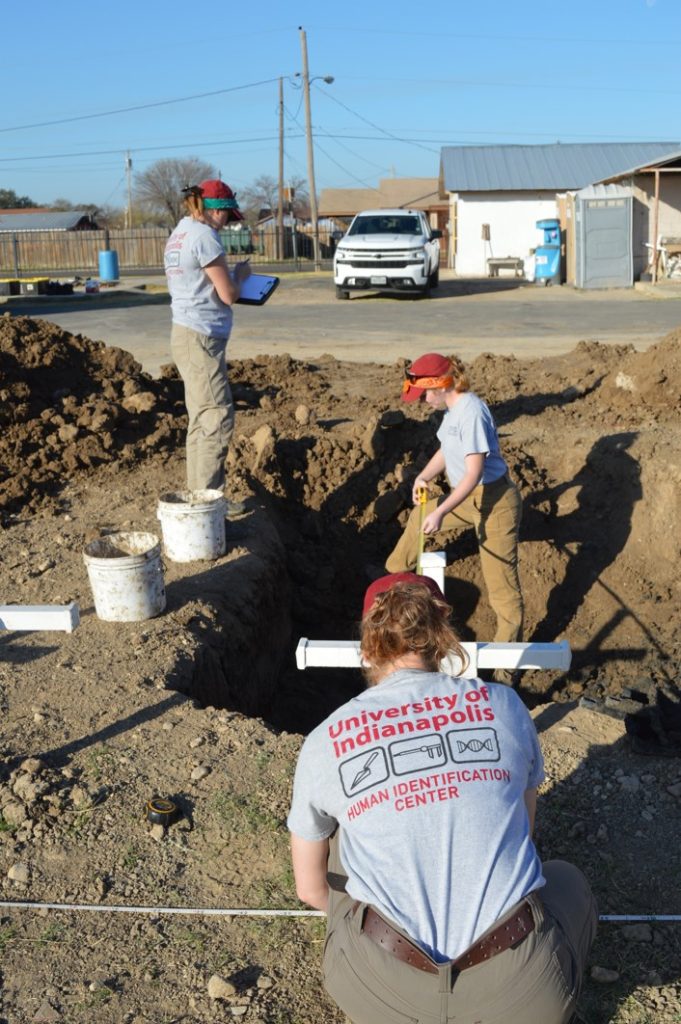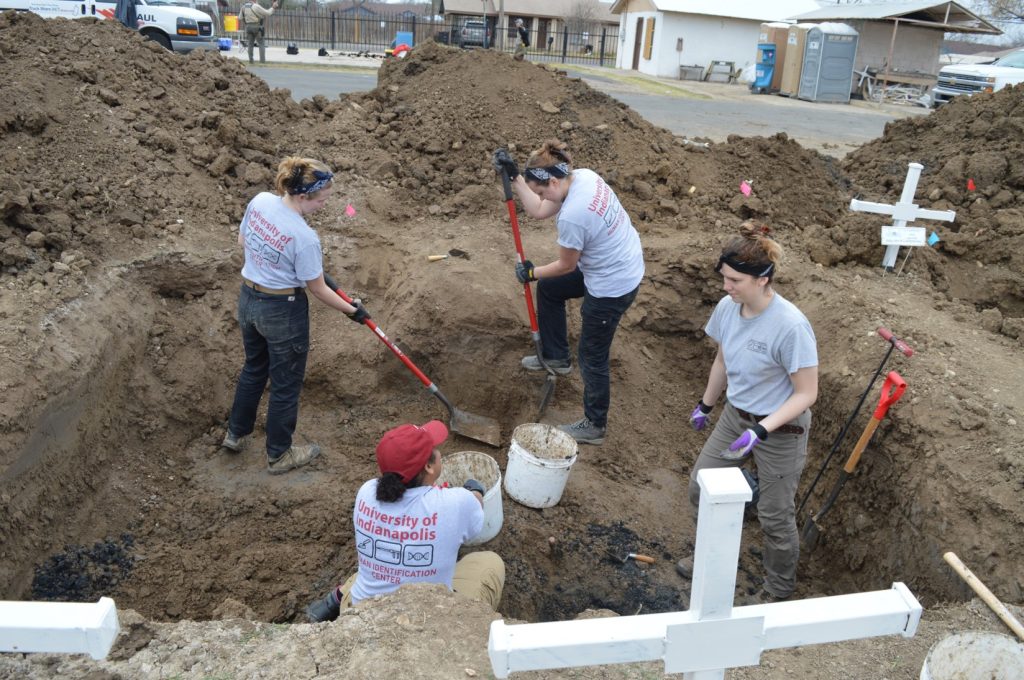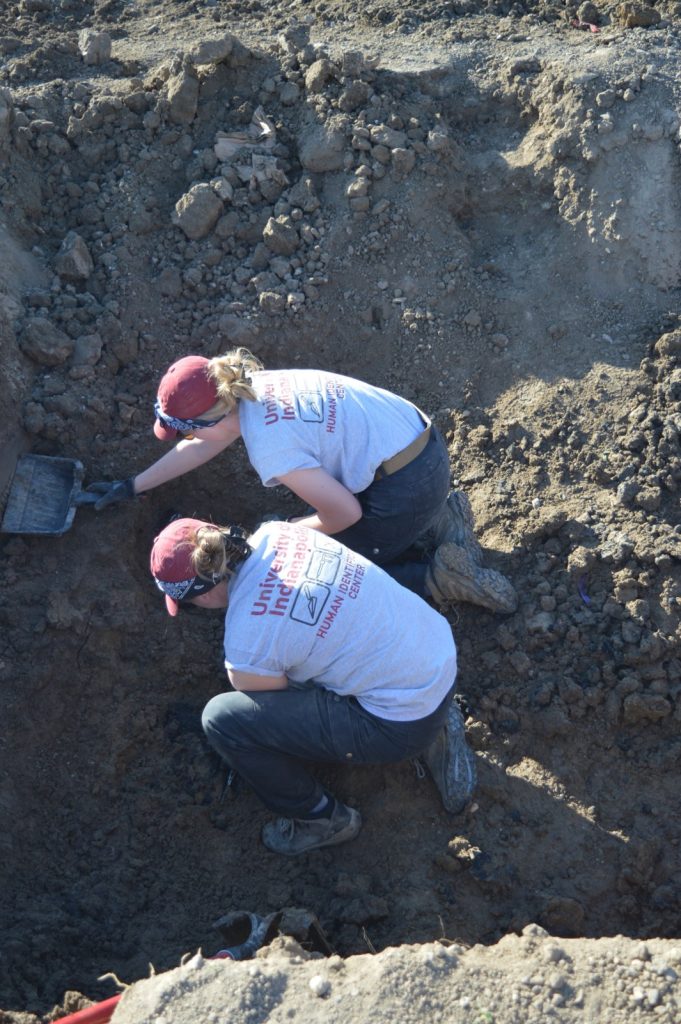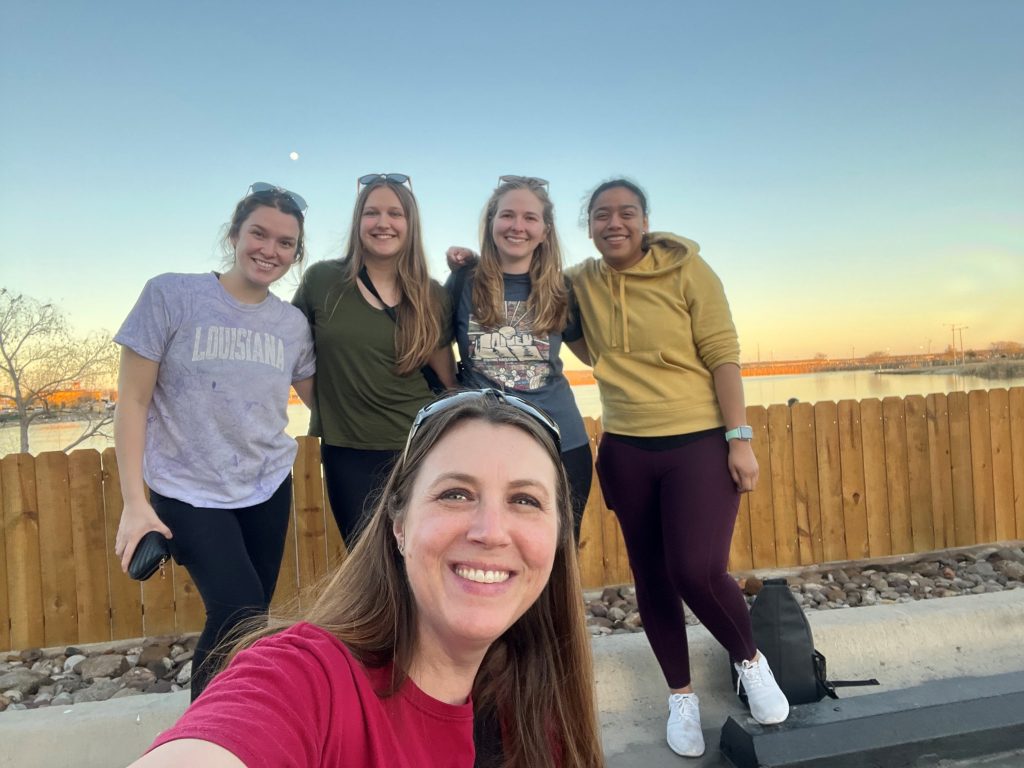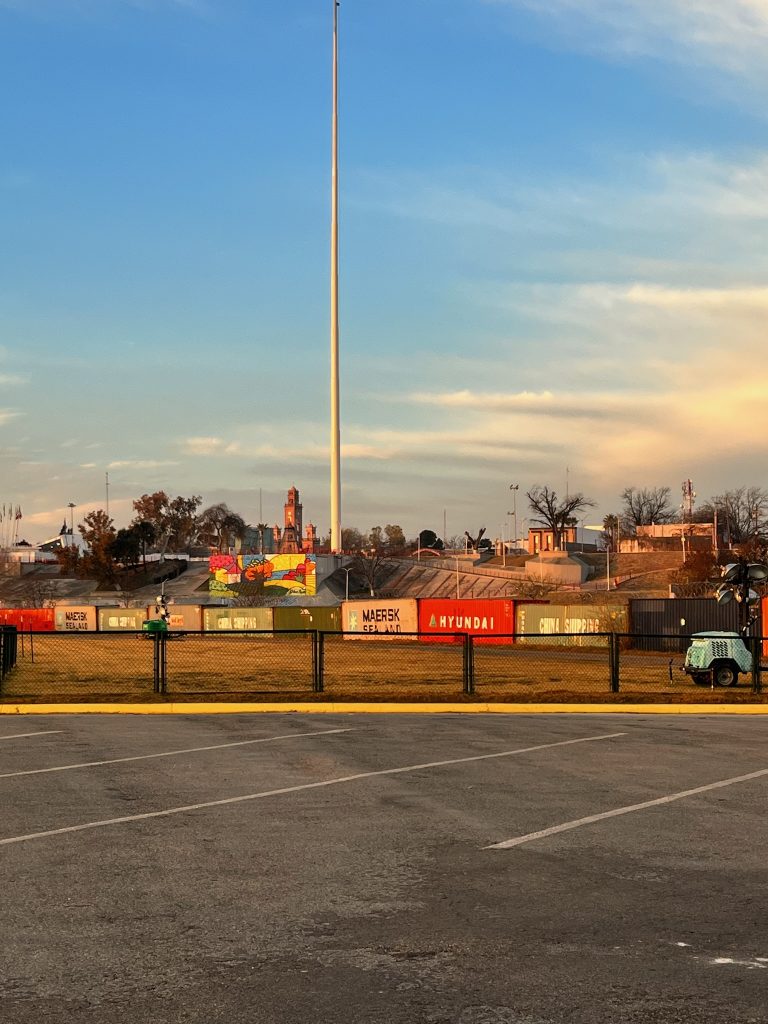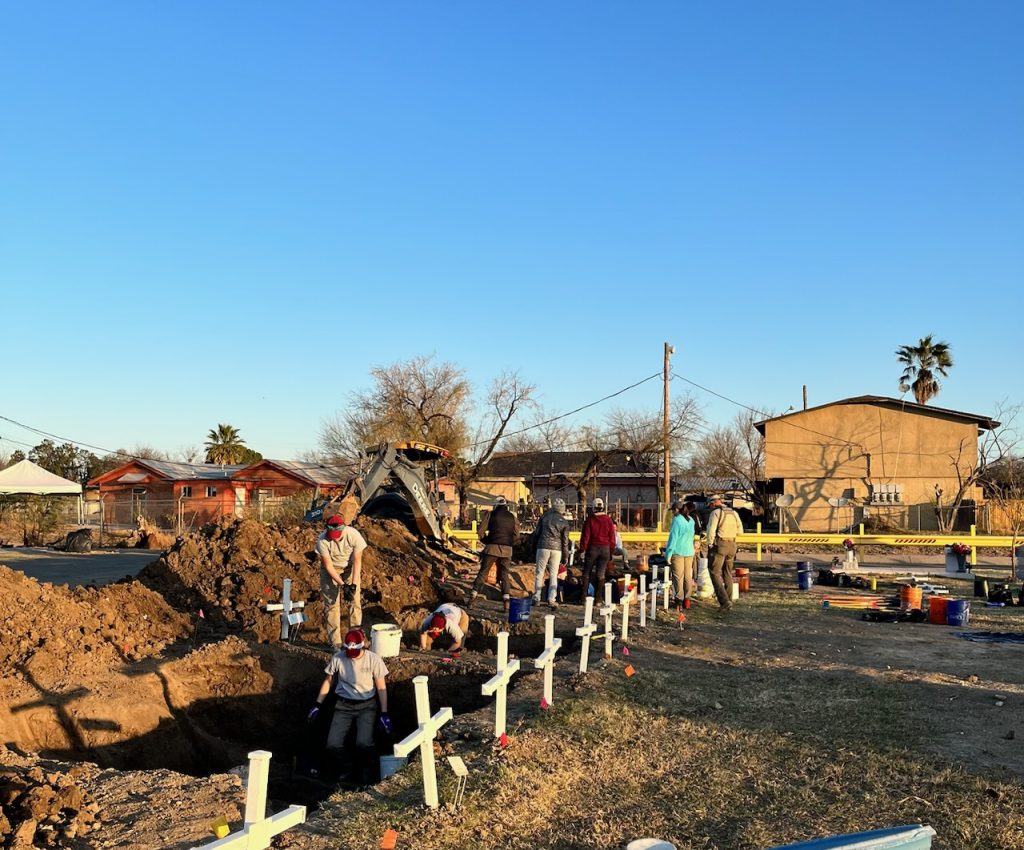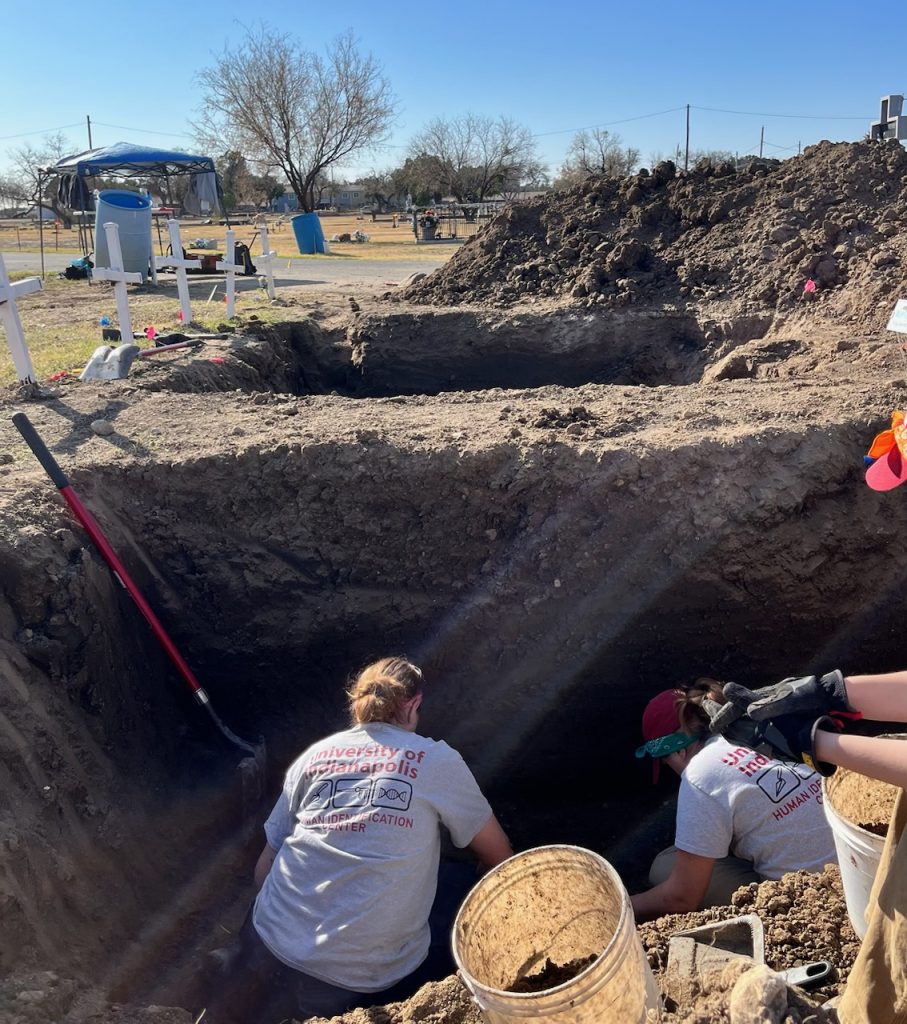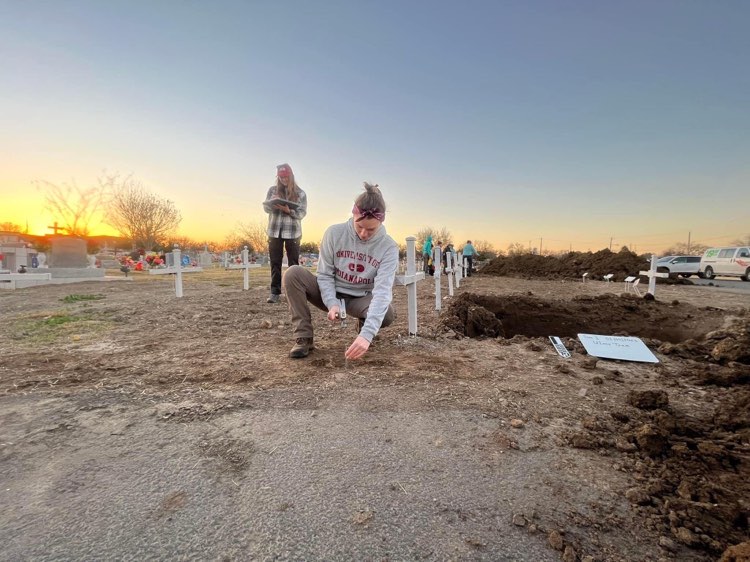
Our trip to Eagle Pass felt like it was over just as quickly as it started. It was so good to see Don, Eddie, and Dr. Spradley again. This was my first real forensic archaeology experience with manually excavating and exhuming burials. There were distinct moments during this trip when I’d be working, sit back, and think “Wow, I have learned so much today.” and each day that feeling only grew stronger. I noticed during the later days of the week how much the team had grown together and were able to work as a cohesive unit. We became so skilled with a trowel that, when we left, our hands stayed formed to holding a trowel (dubbed trowel claw). It was also a new experience to learn how to do this work with the media present. It was a bit daunting, but it did not deter our work ethic.
In my pre-trip post, I said we read about what we may encounter but nothing could truly prepare us for what we’d see and learn, and I can confidently say I was right about that. While providing forensic anthropology in Indiana, there is a lot we are removed from, especially in regards to the border crisis. I have never dealt with death at this scale. In our last debrief, I discussed how many more layers of the forensic anthropology field and the border crisis this trip has exposed me to. It has caused me to recognize and connect these different levels of our work that previously felt disjointed. We work with the individuals brought to our lab under many different circumstances. We have searched the Texas Borderlands and seen evidence of migrant travel, ranging from food wrappers to clothing items, leaving me constantly thinking of where these individuals are and if they are okay. We searched for burials and found individuals discarded alongside miscellaneous trash. We examined the personal belongings of these individuals and their bodies for identifying characteristics. This, especially, is something I am not used to as I am more familiar with analyzing mostly skeletal remains. It can feel invasive to do some of these things, but its to be able to give these individuals their best chance at getting home to their families. I saw their IDs and what they looked like to their loved ones. I heard the family member of one of the individuals previously exhumed speak about their loved one they lost and a bit of their background. To hear them say “I was waiting for them to tell me he opened his eyes, to tell me he’d take another breath.” It’s heart wrenching. So many people are sharing this experience, and so many people don’t even know what is happening besides what is being shown on the news.
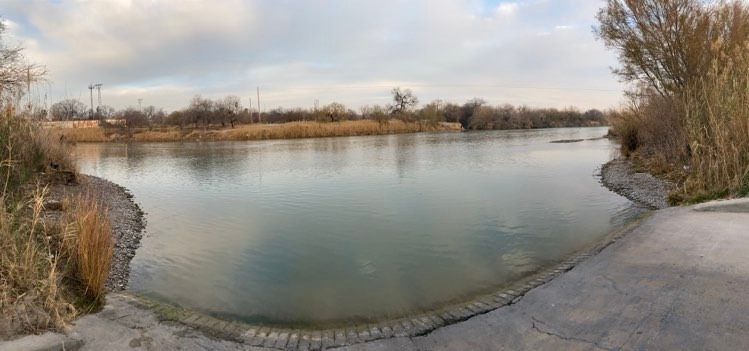
This work is heavy. These are hard things to have on your mind and definitely aren’t things that will fade. These trips allow us to meet some of the individuals working often daily with this border crisis, ranging from activists groups and media to cemetery workers and forensic scientists. Regardless of the motivation or background, each person I met has the same goal, to do the best we can to care for these individuals, and that is one great piece of solace, knowing there are more people out there who care. No one deserves to be treated in the manner we found these individuals in. No one deserves to have to experience the treacherous journey these individuals endured. Each trip reveals so much that we don’t know is going on or don’t know the severity of it.
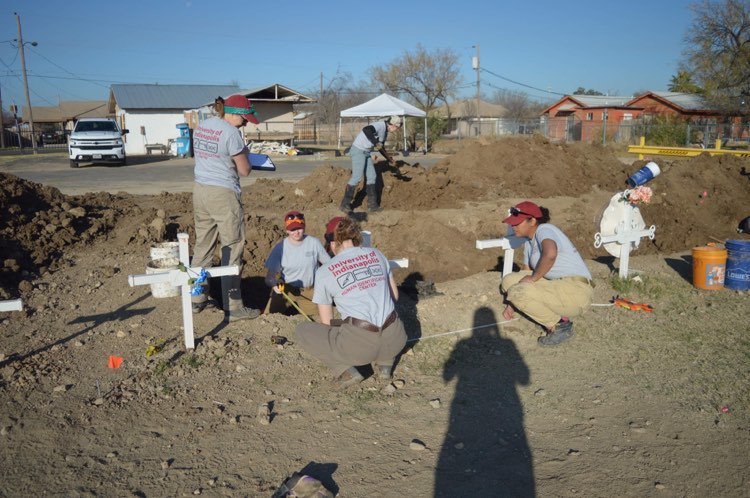
Annnnnd now I am back home. Preparing for school to start, and It feels like the most extreme 360. I very naively thought that after two trips to Texas my transition back to normal life in Indiana would be easier, and I was very wrong. This trip was such an eye-opening experience for me. I learned SO much in such a short period of time skill wise and even more so about the border crisis. I get to share my experience and help others understand what really is going on. It is a privilege to be able to do so. I am extremely grateful to Dr. Latham for allowing me to be a part of this team and this project. The lessons I learn from these trips, personal and skill-wise, are exceptional, and I am proud to have been a part of the team and the work we’ve done.
–Izzy
